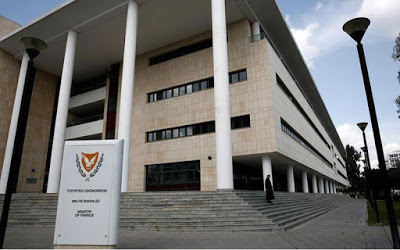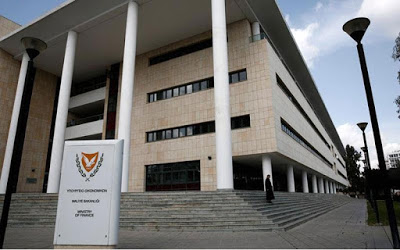Cyprus received only € 7,1 billion of the € 9 billion of the Program and the last installment of € 400 million is missing. No more funds were needed, which is indicative of the state of the economy. The fulfillment of the three prerequisites for the ratification by the Eurogroup of the 8th evaluation of the Cyprus Adjustment Program is crucial. The forecasts cause optimism in the Government for the subsequent course if there are no deviations. The target for the primary budget surplus in 2015 increased to € 409 million or 2,4% of GDP.
The fiscal target for 2015 based on the previous Memorandum referred to a surplus of € 334 million or 1,9% of GDP. For 2016, a primary surplus of € 473 million or 2,7% of GDP is projected compared to € 433 million or 2,4% of GDP projected in the previous Memorandum. At the same time, the target for the deficit after interest expenses for 2015 was revised to 0,8% of GDP compared to 0,9% previously, while for 2016 to a surplus of 0,1% from a deficit of 0,1% of GDP . The Cypriot authorities will continue the reform of the tax administration, with the aim of enhancing efficiency and effectiveness in revenue collection and the fight against tax fraud and tax evasion, in order to increase tax revenues. The Memorandum states that the sustainability of public finances is of paramount importance in order to maintain stability in the economy and the confidence of businesses, citizens and foreign investors in the economic prospects of Cyprus.
Continuation of goals
In this context, there are four objectives:
• To continue the ongoing process of fiscal consolidation, in order to achieve 3% of the primary surplus of GDP in 2017, 3% to 4% of GDP in 2018 and to maintain at least such a level thereafter depending on the debt dynamics.
• Achieve the annual budget targets set out in the Memorandum of Understanding with high quality permanent measures, in particular by limiting the increase in public sector expenditure, wage costs, social benefits and emergency expenditure.
• Correction of the excessive deficit of the general government from 2016.
• Maintain fiscal consolidation in the medium term through a balanced budget in structural terms, by curbing spending growth, improving the tax structure and taking fiscal structural measures.
Wage sustainability
One of the major issues addressed by the updated January Memorandum is ensuring fiscal wage sustainability in the public sector and coherence with medium-term fiscal targets. As pointed out, this will be ensured by the reform of the wage setting mechanism, where increases will be subject to economic and budgetary conditions based on objective indicators. The Troika's positions on the image of the public administration regarding the evaluation and promotion of civil servants cannot be absent from the Memorandum.
The Memorandum states that the Cypriot authorities have taken a series of tax measures for 2012-2014 and have proceeded with structural reforms. The Authorities are committed to the full implementation of the measures and to monitor their budgetary impact regularly. Creditors point out that any discrepancies should be assessed and addressed in the light of macroeconomic developments. In the event of reduced revenue or increased spending needs, the Government must be prepared to take additional measures to maintain the objectives of the program. During the program period, revenues in excess of program projections, including any extraordinary profits, should be stored or used to reduce debt. Measures such as tax amnesties, which could adversely affect tax compliance and enhance tax fraud and evasion, should not be taken during the program period.
The Memorandum states that, in the light of the economic challenges, EU funds should be directed to those sectors that offer the most significant economic and social impact. The Authorities will ensure the institutional capacity to implement current and future programs.
Six efforts for the benefit of macroeconomics
The Troika in the updated memorandum points out that Cyprus has been enjoying the average growth rate in the Eurozone for over a decade. At the same time, it is pointed out that employment in the public sector and its services has been greatly expanded. Looking to the future, the memorandum states, with the appropriate support for the sustainable and balanced development of the Cypriot economy and the structural reforms needed to ensure the long-term sustainability of public finances, the negative effects on employment can be mitigated. In this context, the objectives are:
>> Improving the efficiency of public spending and the budgetary process through the effective implementation of the Medium-Term Financial Framework
>> Take further steps to improve the efficiency and coverage of the healthcare system and control the increase in health expenditure
>> Increase tax revenue by improving tax compliance and collection
>> Public administration reforms to improve its operation and cost-effectiveness,
>> Reforms of the overall benefit structure with a view to the efficient use of resources and to ensure a proper balance between social welfare and incentives for employment
>> Develop a program to improve the efficiency of state-owned and semi-state-owned enterprises to launch a privatization program.
Source: Liberal

